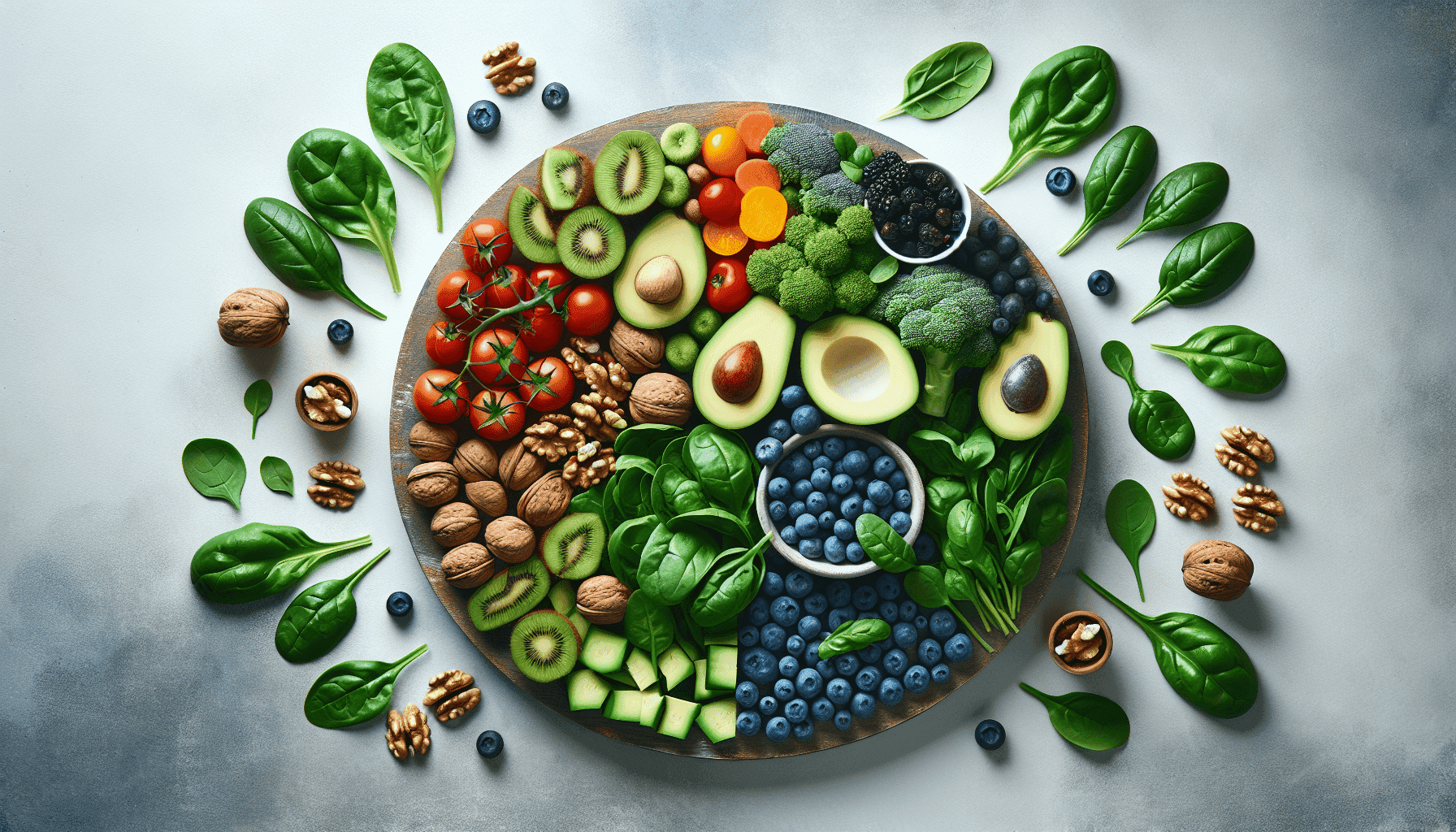The Importance of Eating Well for Mental Health. Have you ever wondered about the connection between your diet and your state of mind? This concept, once overlooked, is rapidly gaining recognition in the discourse on mental health. Nutrition is not just pivotal for physical well-being, but it’s also a crucial player in maintaining mental health. In an age where mental disorders such as anxiety and depression are becoming increasingly prevalent, understanding the impact of dietary choices is imperative.

Table of Contents
The Evolution of Dietary Understanding in Mental Health
Historically, the nexus between what you consume and how you feel mentally was understated. The focus tended to be more on physical conditions linked to poor diet, like obesity or heart disease. However, recent studies have started to highlight the profound implications that diet can have on mental health. Decades ago, the idea that food could affect mood and cognition was quite novel. Today, it is an established fact that nutrition plays an integral part in mental wellness, impacting various mental functions and conditions.
A Change in Perspective: From Neglect to Necessity
Previously, dietary strategies for mental health were often overlooked in comparison to more conventional treatments such as medication and psychotherapy. The shift began partially due to a growing body of research illustrating correlations between dietary patterns and mental well-being. This new perspective has opened doors to holistic treatment approaches that include nutritional interventions, recognizing the power of diet as a preventive and therapeutic tool against mental health issues.
Key Nutrients Influencing Mental Health
Understanding the specific nutrients that influence mental health is vital. Several nutrients have been identified as playing critical roles in maintaining psychological well-being. These include omega-3 fatty acids, B vitamins, and antioxidants, among others.
Omega-3 Fatty Acids: Brain’s Best Friend
Found primarily in fish and certain plant oils, omega-3 fatty acids are essential for brain health. These nutrients have anti-inflammatory properties that are beneficial for maintaining the structure and function of brain cells. Several studies have indicated that adequate intake of omega-3s can help mitigate anxiety and depression symptoms.
B Vitamins: The Energy Boosters
B vitamins, including B12 and folate, are crucial for mood regulation and cognitive function. They play a significant role in producing neurotransmitters such as serotonin, which influences mood. A deficiency in these vitamins can lead to feelings of fatigue, irritability, and depression.
Antioxidants: The Protectors
Antioxidants like vitamin C and E help protect the brain from oxidative stress caused by free radicals. This stress can contribute to neurodegeneration and mood disorders. Thus, diets rich in fruits, vegetables, and nuts, which are high in antioxidants, support mental clarity and emotional stability.

Examining Dietary Patterns and Their Effects
Certain dietary patterns have been associated with positive mental health outcomes, while others may exacerbate mental health issues. It’s essential to explore these patterns to understand how to best tailor your diet for mental well-being.
The Mediterranean Diet: A Model of Mental Wellness
The Mediterranean diet, characterized by high consumption of fruits, vegetables, whole grains, and healthy fats, has been linked to improved mental health. This diet supports a wide array of nutrients crucial for brain health and has been shown to reduce the risk of depression and cognitive decline.
Benefits of the Mediterranean Diet:
- Rich in omega-3 fatty acids
- High in vitamins and minerals
- Supports gut health
The Western Diet: A Cautionary Tale
In contrast, the Western diet, high in processed foods, sugars, and unhealthy fats, has been associated with increased risks of depression, anxiety, and other mental disorders. This diet pattern often leads to nutrient deficiencies and inflammatory processes detrimental to brain health.
Consequences of the Western Diet:
- Low in essential nutrients
- Can lead to increased inflammation
- Associated with mood swings and cognitive issues
The Gut-Brain Axis: Your Second Brain
The gut-brain axis represents the communication network linking your gastrointestinal tract and brain. This connection suggests that gut health directly impacts mental health.
Exploring the Gut Microbiome
The gut microbiome consists of trillions of bacteria that play a significant role in your overall health. These bacteria are involved in digestion, immune function, and even neurotransmitter production. A balanced gut microbiome promotes positive mental health, while an imbalance is linked with mood disorders.
The Role of Probiotics and Prebiotics
Consuming probiotics and prebiotics supports the health of your gut microbiome. Probiotics are live beneficial bacteria found in fermented foods, while prebiotics are food for these bacteria, found in fibrous foods like vegetables and grains. Integrating these into your diet can enhance mental well-being.

Steps to Integrate a Mental Health-Friendly Diet
Creating a diet that promotes mental health involves mindful choices that incorporate nutrient-rich foods and healthy dietary patterns.
Evaluate Your Current Diet
Begin by assessing your existing eating habits. Identify areas where your diet may be lacking in essential nutrients. Are you consuming enough omega-3s, B vitamins, and antioxidants? Are processed foods making up a significant portion of your meals?
Develop a Balanced Meal Plan
A balanced diet should include a variety of whole foods that provide the necessary nutrients for mental wellness. Consider adopting elements of the Mediterranean diet, which emphasizes diversity and balance.
Ensure Consistent Intake of Key Nutrients
Focus on consistently consuming foods rich in the nutrients essential for mental health. Incorporate sources of healthy fats, like fish or avocados, leafy greens for B vitamins, and a variety of fruits for antioxidants into your daily meals.
Limit Processed Foods and Sugars
Processed foods and sugars can have a detrimental impact on mental health. Try to limit these in your diet while increasing the proportion of whole, unprocessed foods. This change not only supports mental health but also improves overall physical health.
Real-Life Application and Success Stories
Implementing a diet focused on mental health can result in significant improvements in well-being. Success stories from individuals who restructured their diets demonstrate the power of nutrition in transforming mental health outcomes.
Case Study: Diet and Depression
Consider the case of an individual struggling with depression who decided to switch from a Western diet to a Mediterranean-style eating plan. By incorporating more fruits, veggies, and healthy fats, they experienced reduced depressive symptoms and increased energy levels.
Table: Dietary Changes and Their Mental Health Effects
| Dietary Change | Estimated Effect on Mental Health |
|---|---|
| Increase omega-3 intake | Improved mood and reduced anxiety |
| Higher fruit and vegetable consumption | Enhanced emotional stability |
| Reduce processed foods | Lower incidence of depression and anxiety |
| Add probiotics | Better gut health and mood balance |

Future Directions in Nutrition and Mental Health
As research continues to evolve, new insights and trends are expected to emerge. Staying informed about these developments is important for understanding and enhancing the relationship between diet and mental health.
Advanced Nutritional Strategies
Technology is making its way into nutritional science, offering ways to tailor diets for individual needs. Personalized nutrition, based on genetic profiling, is an emerging field that could revolutionize dietary strategies for mental health.
Promoting Public Awareness
Raising awareness about the impact of diet on mental health is crucial. As the connection is recognized more widely, integrating nutrition into public health strategies will become more prevalent, changing how mental health is addressed globally.
Conclusion: A Call to Action for Your Diet and Mental Health
In conclusion, constructing a diet that bolsters mental health involves understanding the importance of nutrients, dietary patterns, and gut health. By evaluating current eating habits and making informed dietary choices, one can significantly enhance mental well-being. Transitioning away from a diet filled with processed foods and toward a nutrient-rich regime can support not just your mental health, but also lead to improvements in overall quality of life. Your journey towards better mental health can begin with the very next meal. What changes are you willing to make in your diet today to foster a healthier mind tomorrow?
For further reading, explore related articles such as [“A Beginner’s Guide to Nutrient-Rich Diets”] to continue your journey towards optimal mental and physical health.

How diet can affect your mental wellbeing
Exploring Physical and Mental Health Activities: Enhancing Your Well-Being

